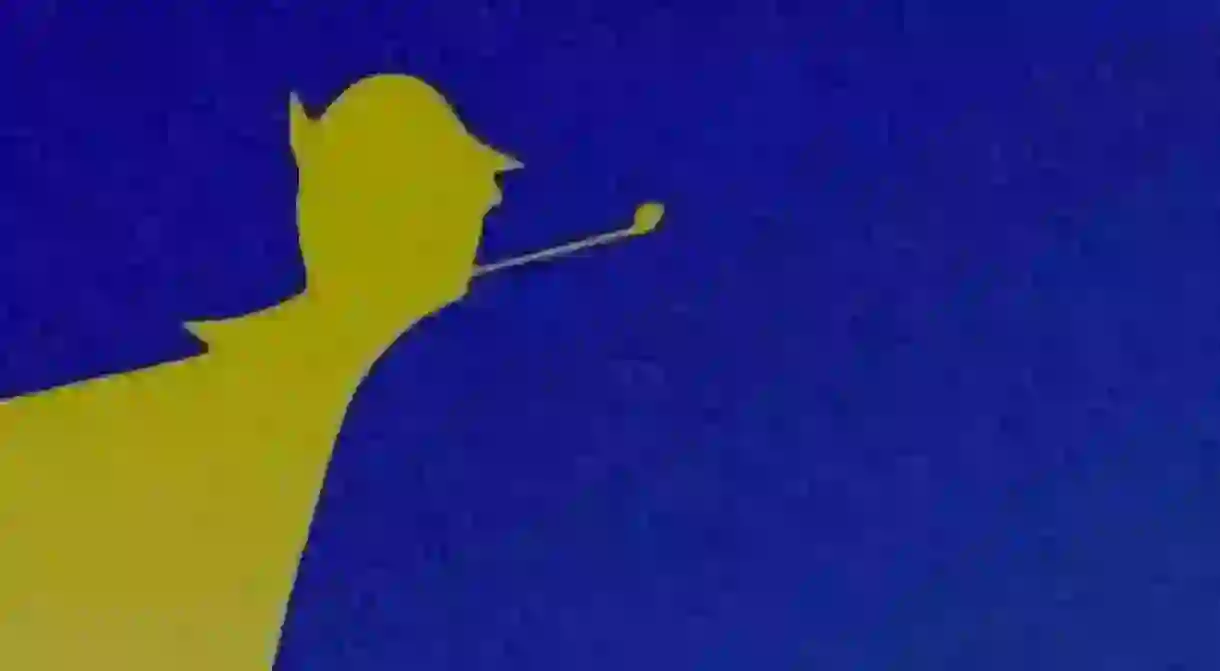The Modern Times Of Jacques Tati

Jacques Tati, the creator of the lovably bumbling comedic character Monsieur Hulot, inspired a style of visual comedy that was part slapstick and part social critique. Here’s why his films are important.
Capturing the growing obsession with consumerism, Tati channeled his anxieties about changing social relationships and the isolating effect of cities being transformed by technology and ultra-modern design.
Tati’s films are as entertaining as they are thematically intriguing. The amusing antics of Tati’s character Monsieur Hulot employ a comical series of mishaps – many of which also interrogate issues of modernisation, urbanisation and the synthetic relationships that develop as a result. Tati constantly explores themes of technology, commercialisation, and the rise of a consumer class with a deftly humorous touch.
Born in France and a descendent of Russian nobility, Tati was a natural athlete who completed military service at age 20. He then had a semi-professional rugby career with Racing Club de France while living in London.
Tati’s natural gift of performance was first discovered in the comic routines he did to amuse his fellow teammates between training sessions. After his time with Racing Club de France, Tati returned to his native France where he completely immersed himself in a career as a performance artist. Tati’s early entertainment career consisted of various cabaret acts and continued until World War II, when he returned to military duty and again served in France’s 16th Regiment of Dragoons.
Following this second stint in the military, Tati arrived back in France to resume his performance career, specifically in cabaret, and then did extra work in French films. In 1946, Tati gave one of his early minor performances in Sylvie et le fantôme (Sylvie and the Ghost) and met Fred Orain, his future partner in their film production company Cady-Films. The union of Orain and Tati proved to be both inspired and successful.
Jour de fête (The Big Day), filmed in 1947, was Tati’s first feature length film in which he also directed. As a precursor to Tati’s Monsieur Hulot character, Jour de fête told the story of a comically bumbling and incompetent postman who is distracted from his professional tasks by a visiting fair that arrives in his town.
Setting forth a pattern that Tati would continue to follow, Jour de fête employed carefully interspersed sound effects with theatrical acting to create a rollicking comedy of errors. The film not only served as its director’s formal introduction to the international film circuit, but also established his control and natural comedic gifts as a cinematic storyteller.
Around this time, the character of Monsieur Hulot took shape. Tati’s pipe-smoking, raincoat- sporting comically bumbling persona remains one of film’s most iconic roles and makes appearances in all but two of Tati’s films. In 1953, Monsieur Hulot’s Holiday introduced movie-going audiences to the sweetly endearing but woefully inept figure of Monsieur Hulot on a beach holiday. Nominated for a Best Writing, Story and Screenplay Academy Award in 1956 following its international release, Monsieur Hulot’s Holiday continued in the mold of comedic brilliance that Tati first displayed in Jour de fête.
Through the 1950s and 60s, Tati continued to develop narratives featuring Monsieur Hulot. Mon Oncle (My Uncle), the story of Monsieur Hulot’s ill-fated attempted to adapt to the technologically advanced lives of his sister and her family let to Tati’s winning the coveted Best Foreign Language Film Oscar.
Tati’s concluding duo of directorial efforts in feature length films, 1967’s Playtime and 1971’s Trafic (Traffic), follow Mr. Hulot on his final hilariously catastrophic adventures. While Tati moved away from feature length films after Trafic, he continued to act, produce and make short films until his death in 1982.Through Monsieur Hulot, Tati introduced a comedic style that particularly reflected the post-war period of 1950s and ’60s Europe.













